Kangming Li
LLM4Mat-Bench: Benchmarking Large Language Models for Materials Property Prediction
Oct 31, 2024
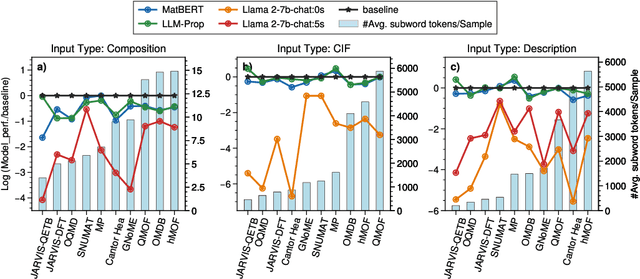

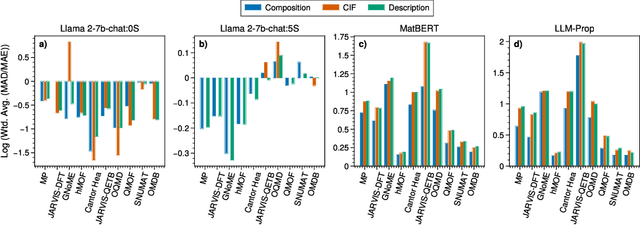
Abstract:Large language models (LLMs) are increasingly being used in materials science. However, little attention has been given to benchmarking and standardized evaluation for LLM-based materials property prediction, which hinders progress. We present LLM4Mat-Bench, the largest benchmark to date for evaluating the performance of LLMs in predicting the properties of crystalline materials. LLM4Mat-Bench contains about 1.9M crystal structures in total, collected from 10 publicly available materials data sources, and 45 distinct properties. LLM4Mat-Bench features different input modalities: crystal composition, CIF, and crystal text description, with 4.7M, 615.5M, and 3.1B tokens in total for each modality, respectively. We use LLM4Mat-Bench to fine-tune models with different sizes, including LLM-Prop and MatBERT, and provide zero-shot and few-shot prompts to evaluate the property prediction capabilities of LLM-chat-like models, including Llama, Gemma, and Mistral. The results highlight the challenges of general-purpose LLMs in materials science and the need for task-specific predictive models and task-specific instruction-tuned LLMs in materials property prediction.
Evaluating the Performance and Robustness of LLMs in Materials Science Q&A and Property Predictions
Sep 22, 2024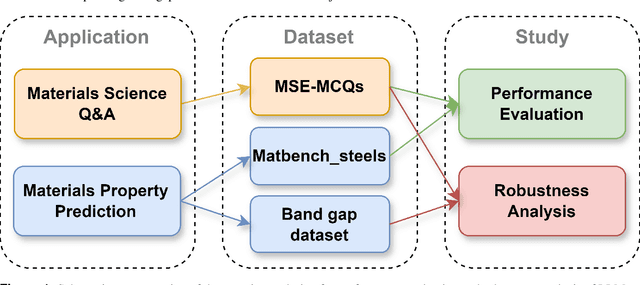

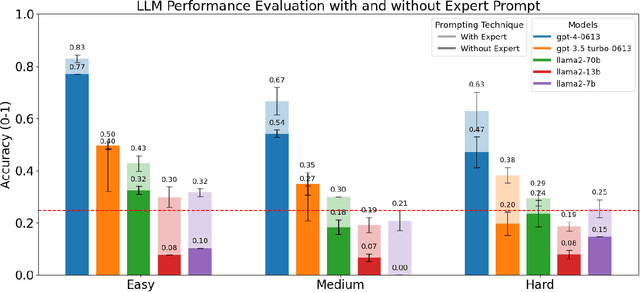
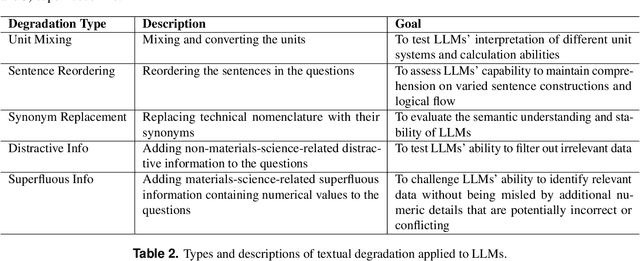
Abstract:Large Language Models (LLMs) have the potential to revolutionize scientific research, yet their robustness and reliability in domain-specific applications remain insufficiently explored. This study conducts a comprehensive evaluation and robustness analysis of LLMs within the field of materials science, focusing on domain-specific question answering and materials property prediction. Three distinct datasets are used in this study: 1) a set of multiple-choice questions from undergraduate-level materials science courses, 2) a dataset including various steel compositions and yield strengths, and 3) a band gap dataset, containing textual descriptions of material crystal structures and band gap values. The performance of LLMs is assessed using various prompting strategies, including zero-shot chain-of-thought, expert prompting, and few-shot in-context learning. The robustness of these models is tested against various forms of 'noise', ranging from realistic disturbances to intentionally adversarial manipulations, to evaluate their resilience and reliability under real-world conditions. Additionally, the study uncovers unique phenomena of LLMs during predictive tasks, such as mode collapse behavior when the proximity of prompt examples is altered and performance enhancement from train/test mismatch. The findings aim to provide informed skepticism for the broad use of LLMs in materials science and to inspire advancements that enhance their robustness and reliability for practical applications.
 Add to Chrome
Add to Chrome Add to Firefox
Add to Firefox Add to Edge
Add to Edge